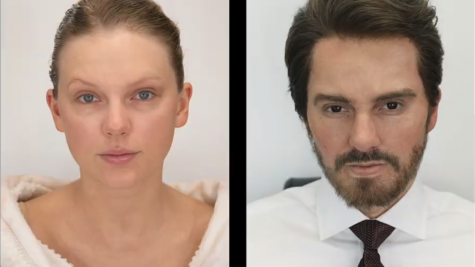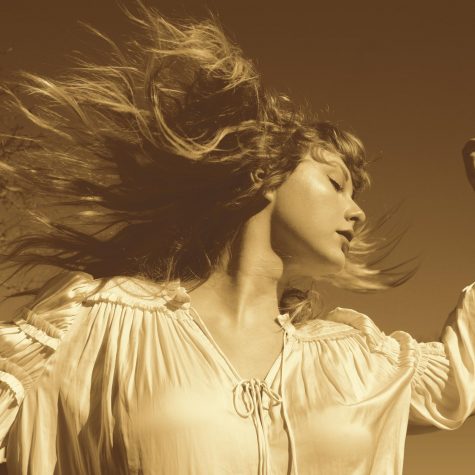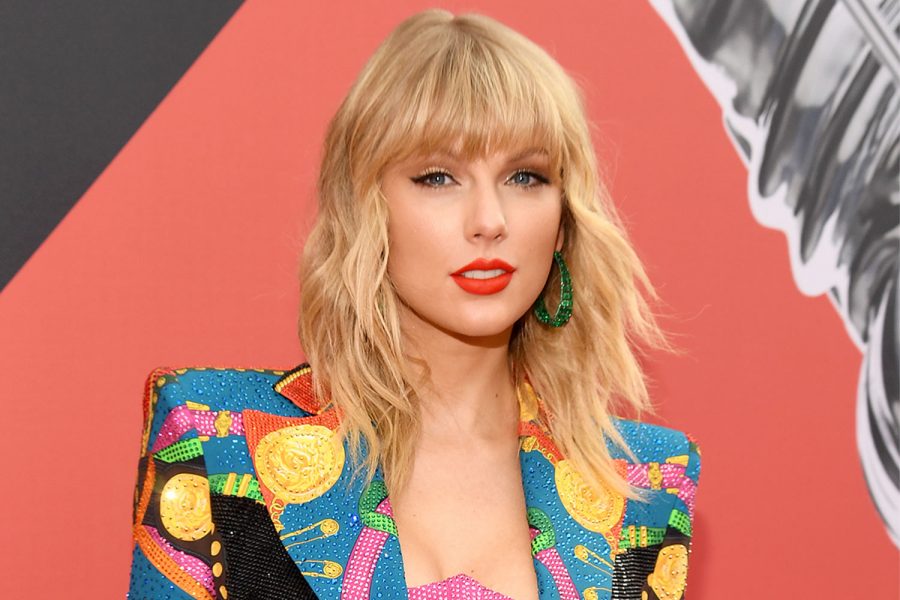Taylor Swift: Misogyny & the Media
NEWARK, NEW JERSEY – AUGUST 26: Taylor Swift attends the 2019 MTV Video Music Awards at Prudential Center on August 26, 2019 in Newark, New Jersey. (Photo by Kevin Mazur/WireImage)
When asked what she would say to her 19 year old self, 26 year old Taylor Swift is quoted saying, “Hey, you’re going to date just like a normal 20-something should be allowed to, but you’re going to be a national lightning rod for slut-shaming.” There are no double standards quite as prevalent as that of the entertainment industry— a glaringly obvious example being standards to which artists of different genders are held. Female artists constantly face much more critique and backlash than their cis male counterparts. Though there are people who simply don’t like a style or genre of music, the double standard fuels even more criticism. Whereas these musicians faced controversy for being outwardly confident in their sexuality as women, male artists who sing similar songs face little to no backlash.
The requirements which women abide by in the music industry create intense pressure on rising stars as young as teenagers. Taylor Swift, arguably one of the most popular artists of this generation, has been living in constant limelight for 15 years. Across 9 studio albums, Swift’s journey from Southern sweetheart to outspoken poet has garnered regular pushback from the media and the easily-influenced general public.

One of the most defining aspects of Swift’s career has been her reputation for writing breakup songs and dating many men. She’s been slammed for years for doing so, and has taken to poking fun at it in songs like “Blank Space” or, in her more recent song “The Man” blatantly pointing out that, if she were a man, “they’d say [she] played the field before [she] found someone to commit to.”
As Swift exemplifies, men are often praised for doing that for which women are critiqued— publicly dating and breaking up with many people. The song also mentions that women who show off their money are considered flashy and catty while the men who do so are “ballers.” In short, the double standard allows men to be celebrated while women are chastised.
During more serious moments, Swift hasn’t hesitated to call out interviewers who base their questions on stereotypes around women. She’s compared the struggle of female and femme-presenting songwriters like herself and Nicki Minaj in having to prove they’ve written their own songs to someone like Ed Sheeran, a male artist whose songwriting goes unquestioned. When she turned 30, she was asked whether she had plans to “settle down” any time soon. She declined to answer the question, because “[she] really [doesn’t] think men are asked that question when they turn 30.”
Young celebrities, especially women, are expected to be quiet in regards to politics or potentially controversial topics to appeal to the widest audience possible. The 2020 documentary Miss Americana includes a scene in which Swift discusses with her team and parents about speaking out politically. In 2018, she publicly encouraged Democrats to vote in a Tennessee midterm election. Former president Donald Trump then coyly announced that he was less of a fan of Swift, and the media heavily covered her past reluctance to speak about advocacy. Hollywood’s pressure to maintain a perfect image as a popular young star forced Swift into silence and, as she also revealed in the film, to struggle with an eating disorder for years. She is only one of many popular young starlets like Demi Lovato and Lady Gaga who have faced the pressure of a spotlight and subsequently fallen victim to an ED. The ever-present eyes of the entertainment industry and its body-shaming culture only add to the impossible expectations of women’s bodies and fuel the downward spiral of their health.

Swift has also faced her fair share of music industry manipulation. Most recently, she has decided to re-record her older discography after her contract with Big Machine Label Group expired in November 2018. At just 15 years old, she had signed with the record label, allowing it ownership of the master tapes of her first 6 albums. When BMLG was sold to Scooter Braun— Kanye West’s manager, with whom Swift has had a rocky history— her fight for ownership of her original work became essentially fruitless. However, as of February 12 of this year, Swift is creating new tracks of her songs to re-release and own completely, taking back possession of her own creativity.
Swift has found her voice both through her music and her public image. Yet, the iconic pop star has lived the better part of young adulthood in the lens of the tabloids, providing a prime example of the ways in which this misogynistic double standard affects women in entertainment.


